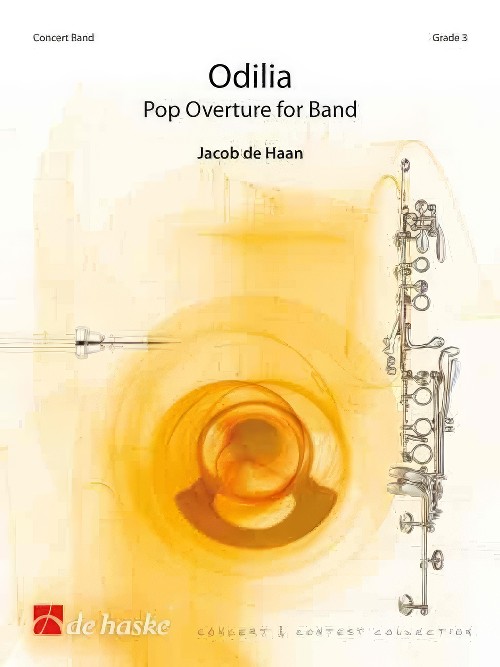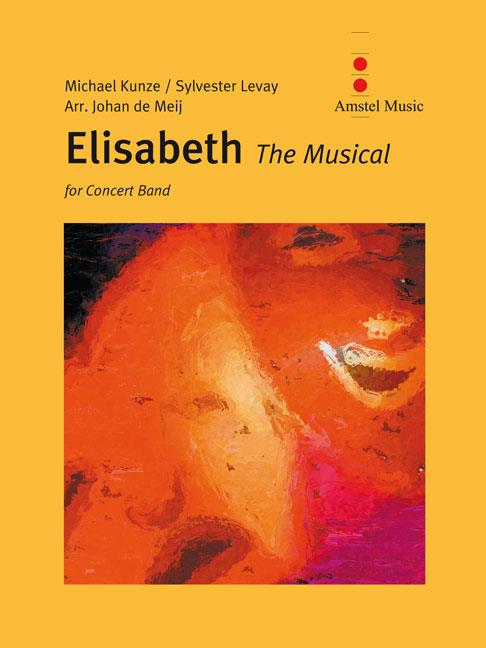Results
-
 £139.99
£139.99Papyrus - Thomas Doss
The history of paper ranges over more than five thousand years: likely starting around 3500 BC in old Egypt with the use of papyrus. The oldest findings of written paper date from 2700 BC. In China, the first production of paper took place in the year 105 AD. The Arabs acquired their knowledge of the art of making paper around 750 AD, thanks to Chinese prisoners of war. Around the same time, the Celtic Ogham script was created in Ireland and carved into stones or trees. In Europe, the first paper mill was not put into operation until the 12th century! No matter how different the production methods and its historical use, paper was always a way to pass on wisdom, art and knowledge. Even today, in the age of digitalisation, paper still has a somewhat 'sacred' image. With Papyrus, Thomas Doss has written a wonderful composition in which the history of paper is reflected, and listeners can very much hear the various periods of this history represented throughout the piece.
Estimated dispatch 7-14 working days
-
 £134.99
£134.99Odilia - Jacob de Haan
Odilia is an up-tempo and joyful ode to Baume-les-Dames, a village in the department of Doubs in Franche-Comt, Eastern France.The title is derived from the legend of Odilia of Alsace (venerated as Saint Odilia, or Odile), the daughter of the Duke of Alsace. She was born blind, and literally saw the light at the age of twelve at the convent of Baume-les-Dames. From this miraculous occurrence, she was dubbed Odilia -- child of light.Jacob de Haan was inspired by medieval dance music for the opening of this composition. In the slow movement that follows, a lyrical minor theme builds to a dramatic climax, which is followed by a calm passage featuring the repeatedlyrical theme. Finally, the medieval motif returns, this time presented in a festive gospel version.
Estimated dispatch 7-14 working days
-
£113.30
Rumanian Folk Dances - Béla Bartók
Bla Bartk (1888 - 1945) showed from the beginning of his career an interest in popular music. He began studying music at the age of five and eventually focused on composition and piano. He collected a lot of popular songs, especially during his studies in Hungary, but also music from Romania and Slovakia. This had a lot of influence on his style. In his compositions, Bartk uses many Hungarian popular themes and rhythms, and even his own original works always refer to the same rhythmic and melodic folk character. At the beginning of the twentieth century, Bartk detached himself from romanticism and began to delineate his style on harmonic procedures based on diminished and augmented intervals, on bitonality, and on marked percussiveness, characteristics that are at the core of popular music.The Romanian Dances are a collection of seven folk dances, originally composed for piano (1915, the first six) and then transcribed for a small symphonic orchestra (1917). Of purely modal language, like almost all Bartk's music, each dance comes from a different area of Romania (Stick Dance, Sash Dance, In One Spot, Horn Dance, Romanian Polka, Fast Dance of Belnyes, and Fast Dance of Nygra).
Estimated dispatch 7-14 working days
-
 £118.99
£118.99Elisabeth - Sylvester Levay
The world premiere of the musical Elisabeth took place in Vienna on September 3, 1992. From the great acclaim with which the musical was received, it became clear that the life of the Empress of Austria still appeals to the imagination. Although Elisabeth's life (1837-1898) as an Empress has a fairy-tale-like beginning, it takes a gloomy turn. In this production, Luigi Lucheni, the man who finally takes her life, tells her story. Death plays a major role throughout Elisabeth's life. In the musical, an equally mysterious and attractive man portrays the phenomenon of death, seducing her to the realm of death time after time. Elisabeth's life resembles a fairy tale when shemarries the Emperor Franz Joseph at the age of sixteen. Her mother-in-law, Archduchess Sophie, does not make it easy on Elisabeth. But it is life itself that puts the Empress to the test. First, her youngest daughter dies. Then, not long after her son Rudolf is born, her happiness is clouded when her mother-in-law decides she must take pity on him. After her husband's unfaithfulness and Sophie's death, Elisabeth is so disillusioned that she chooses a travelling existence without realizing her husband and her son, Rudolf, miss her. Rudolf's loneliness is one of the reasons he commits suicide. The accumulation of disappointments in Elisabeth's life almost drives her into the arms of Death. In the end, however, it is Lucheni who kills her.
Estimated dispatch 7-14 working days
-
 £134.99
£134.99Odilia (Concert Band - Score and Parts) - De Haan, Jacob
Odilia is an up-tempo and joyful ode to Baume-les-Dames, a village in the department of Doubs in Franche-Comt, Eastern France.The title is derived from the legend of Odilia of Alsace (venerated as Saint Odilia, or Odile), the daughter of the Duke of Alsace. She was born blind, and literally saw the light at the age of twelve at the convent of Baume-les-Dames. From this miraculous occurrence, she was dubbed Odilia -- child of light.Jacob de Haan was inspired by medieval dance music for the opening of this composition. In the slow movement that follows, a lyrical minor theme builds to a dramatic climax, which is followed by a calm passage featuring the repeated lyrical theme. Finally, the medieval motif returns, this time presented in a festive gospel version.Duration: 7:00
Estimated dispatch 7-14 working days
-
 £420.99
£420.99Four Earth Songs (Concert Band - Score and Parts) - Putz, Marco
The hymn Nun ruhen alle Wlder (Now All Forests Rest), arranged by J.S. Bach (No. 6, So sei nun, Seele, deine, from Cantata BWV 13), is a guiding light throughout this four-movement composition. Pu?tz wrote this work as a musical outcry against the wilful, profit-driven destruction of our environment. When Bach used the word "ruhen" (to rest) over 350 years ago, it probably had a different nuance from the meaning it has today. At the beginning of the 21st century - the so-called age of progress - "nun ruhen alle Wlder" should mean "now all forests die" . Massive industrialization and globalization, coupled with pure greed, corruption, political scandals, an ever-widening gap between the rich and poor, and other such senseless human actions, are pushing our blue planet closer and closer to the point of no return. This work is not intended to be a ranting accusation. It should remind us of the beauty and harmony that can exist all around us in nature, if we take care of it. Pu?tz hopes that this will, one day, help put a greater emphasis on humanity's survival, and coexistence with nature rather than the exploitation described earlier. All four texts were created by Australian poet Graeme King, whose works were discovered by Pu?tz, by chance on the internet. Pu?tz was especially captivated by King's clarity, and intrigued by the possibilities of adapting and melding the strong rhythmical structure of King's writing with his own musical language. The four movements are as follows: 1. Tears of Nature 2. Grrrevolution 3. Stand up! 4. Tomorrow The world premire of Four Earth Songs took place on 7 July 2009 at the 14th WASBE-Conference in Cincinnati (USA). This work is dedicated in friendship to Jouke Hoekstra, conductor, and the Frysk Fanfare Orkest (the Frisian Fanfare-Orchestra).Duration: 27:30
Estimated dispatch 7-14 working days
-
 £118.99
£118.99Elisabeth (Concert Band - Score and Parts) - Levay & Kunze - De Meij, Johan
The world premiere of the musical Elisabeth took place in Vienna on September 3, 1992. From the great acclaim with which the musical was received, it became clear that the life of the Empress of Austria still appeals to the imagination. Although Elisabeth's life (1837-1898) as an Empress has a fairy-tale-like beginning, it takes a gloomy turn. In this production, Luigi Lucheni, the man who finally takes her life, tells her story. Death plays a major role throughout Elisabeth's life. In the musical, an equally mysterious and attractive man portrays the phenomenon of death, seducing her to the realm of death time after time. Elisabeth's life resembles a fairy tale when she marries the Emperor Franz Joseph at the age of sixteen. Her mother-in-law, Archduchess Sophie, does not make it easy on Elisabeth. But it is life itself that puts the Empress to the test. First, her youngest daughter dies. Then, not long after her son Rudolf is born, her happiness is clouded when her mother-in-law decides she must take pity on him. After her husband's unfaithfulness and Sophie's death, Elisabeth is so disillusioned that she chooses a travelling existence without realizing her husband and her son, Rudolf, miss her. Rudolf's loneliness is one of the reasons he commits suicide. The accumulation of disappointments in Elisabeth's life almost drives her into the arms of Death. In the end, however, it is Lucheni who kills her.Duration: 8.30
Estimated dispatch 7-14 working days
-
 £40.75
£40.75A Coventry Rhapsody (Symphonic Wind Band) Karl Whelan
VIEW SCORE PDF A Coventry Rhapsody is based on The Coventry Carol, which dates back to the 16th century and is one of three songs from a nativity play entitled Pageant of the Shearman and Tailors which was traditionally performed in Coventry. The carol itself depicts the Massacre of the Innocents in the nativity narrative from the Gospel of Matthew, in which King Herod, orders the execution of all baby boys under the age of two in the vicinity of Bethlehem. Snippets of the carol can be heard throughout the work in different guises. It is not until the final section that we hear the carol in all its glory. Sheet music available from : UK: www.wind-band-music.co.uk USA: www.solidbrassmusic.com Instrumentation: Piccolo (optional) Flute1-2 Oboe Bassoon Clarinet in Eb Clarinet 1-3 in Bb Bass Clarinet in Bb Alto Saxophone 1-2 Tenor Saxophone Baritone Saxophone Trumpet 1 in Bb/Eb Trumpet 2-3 in Bb Horn 1-4 Trombone 1-2 Bass Trombone Euphonium Tuba Double Bass (optional) Percussion (4-5 players) Optional parts include: Tenor Horns 1-4 in Eb Trombone 1-2 in Bb Euphonium in Bb Tuba in Eb Tuba in Bb
In stock: Estimated dispatch 1-3 days
-
 £72.99
£72.99Lyric for Band - George Walker
In 1946, George Walker was still doing graduate work at the Curtis institute when he composed Lyric for Strings, which would prove over the coming decades to become one of the most performed and enduring string orchestra works of the 20th Century. This first-ever edition for symphonic wind band was arranged by Dr. Luci Disano and premiered by The President's Own United States Marine Band on August 24, 2022. George Walker (June 27, 1922 - August 23, 2018) began his groundbreaking career as a young piano virtuoso and was admitted to Oberlin College on a scholarship following his first public recital at the age of 14. Graduating with the highest honors in his Conservatory class, he was admitted to the Curtis Institute of Music, becoming the first black graduate of this renowned music school. His works demonstrate a wide range of artistic excellence in genres ranging from instrumental and vocal solos and chamber music to compositions for orchestra and other large ensembles. He is the first black composer to be awarded the Pulitzer Prize.
Estimated dispatch 7-14 working days
-
 £139.99
£139.99A Man's Destiny - Jan de Haan
A Man's Destiny has the Frisian line 'Yn Ieren en Sinen' ('with much conviction') as its subtitle. The work was commissioned by CMV Harmonie Sneek (based in Friesland, The Netherlands) to acknowledge their 95th anniversary. The composer based this work on the life of a former member of the band, who played flugelhorn in the ensemble until the age of 86. Their favourite piece of music, 'Canon' by Thomas Tallis, provided a great deal of musical inspiration for this characteristic and versatile work.
Estimated dispatch 7-14 working days
